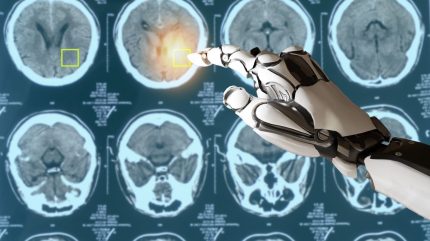
South Korean AI company Lunit has announced a strategic partnership with Microsoft to advance AI-powered cancer diagnostic tools, aiming to integrate these innovations into clinical practice worldwide. This collaboration marks a significant step in the evolution of healthcare technology, as the global AI healthcare market is projected to reach approximately $19 billion by 2027, according to GlobalData analysis.
The partnership will see Lunit and Microsoft co-develop a tool for customizing AI models, which will be embedded into Microsoft’s Azure cloud platform. This integration will enable Lunit users to tailor AI models using site-specific clinical data, addressing the challenge of cross-site model performance variability—a critical barrier in the deployment of AI diagnostics in real-world settings.
Advancing Clinical Efficiency and Decision-Making
Lunit plans to leverage Microsoft’s agentic AI frameworks to create workflow automation tools. These solutions are designed to simplify clinical decision-making and enhance operational efficiency for Lunit’s AI cancer diagnostic tools. Among these tools are the SCOPE HER2 algorithm for evaluating the HER2 biomarker in metastatic colorectal cancer patients and INSIGHT DBT for detecting breast cancer in mammogram images.
“Our collaboration with Microsoft enables us to bring our AI to more providers through trusted platforms like Microsoft Azure, helping us expand access in the US and beyond,” stated Lunit CEO Brandon Suh.
The Role of AI in Radiology
The announcement comes as AI continues to play an increasingly vital role in radiology. The technology is primarily used to drive efficiencies and uncover insights that might be overlooked by human evaluators of radiologic images. This trend is part of a broader movement towards integrating AI across various healthcare sectors.
Microsoft’s Naveen Valluri, General Manager of Health and Life Sciences Data and AI, emphasized the importance of this collaboration: “With Microsoft Azure, we are shaping an ecosystem that supports partners like Lunit in delivering scalable AI innovations. By combining our infrastructure with clinical-grade AI developed in close collaboration with leaders like Lunit, we’re accelerating the development of integrated solutions for radiology and beyond.”
Implications and Future Prospects
This development follows a growing interest in AI’s potential to transform healthcare. As AI technologies become more sophisticated, they offer the promise of not only improving diagnostic accuracy but also enhancing patient outcomes through personalized medicine. The collaboration between Lunit and Microsoft represents a strategic alignment that could set new standards for AI applications in healthcare.
Meanwhile, the partnership underscores the importance of cloud technology in facilitating the deployment of AI solutions at scale. By integrating AI models into platforms like Azure, healthcare providers can access advanced diagnostic tools more readily, potentially leading to more timely and accurate diagnoses.
Looking ahead, the success of this partnership could pave the way for further innovations in AI-driven healthcare, encouraging other companies to explore similar collaborations. As the healthcare industry continues to evolve, the integration of AI will likely become a cornerstone of modern medical practice, offering new opportunities for improving patient care and operational efficiency.
In conclusion, the Lunit-Microsoft partnership is a significant milestone in the journey towards a more technologically advanced healthcare system. As these companies work together to refine and deploy AI diagnostic tools, the potential benefits for patients and healthcare providers alike are substantial, heralding a new era of innovation in medical diagnostics.






